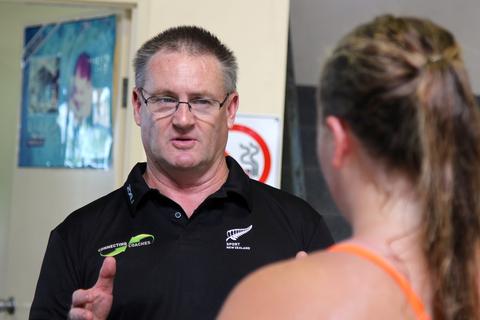Put Physiology Last…and See What Happens.

There it is.
First lecture, first session of every sports coaching course in the world..sports physiology.
And from that moment on, your coaching philosophy is pretty much based on how you will manipulate physiology’s “big three”: volume, intensity and frequency. You, like every coach in the world will start planning the training and development of your athletes around the core principles of sports physiology…you will be focused on the physical.
It’s heart rate this, VO2 max that, lactate this, muscle fibres that….most of what you will do for the majority of your coaching career will be focused on the physiology of preparation and performance.
But just for a moment, think about what would your coaching be like if you put physiology last?
What would your planning and programming look like?
What would your athlete development model look like?
And most importantly, what would the performance of your athletes look like?
Let’s, just for a moment, put physiology last…and see what happens.
It’s not all about the body….
Recently I was speaking to a large group of professional coaches at a conference. As a “warm-up” exercise, I asked the group, “What are the three most important attributes of champion athletes? In your opinion, what three characteristics are the most important when it comes to being successful in sport”.
After a few moments, the coaches began to offer their views.
“Attitude” said one.
“Perseverance” said another.
“Passion” said someone else.
“Determination” yelled another coach.
And over the next two minutes, several coaches offered up their views about what it takes to be successful in sport.
And not one of them said, “a big VO2 max”.
No one said “power output”.
None of the coaches yelled out “agility test results”.
I could have held a similar session any where in the world and with coaches from just about any sport and got the same responses.
We all know getting the physiology right is important: there is no denying it. You can’t win without being physically prepared to a level equal to or superior to your opposition. There’s no fight without the fit!
But for anyone involved in sport, we also know that physical training is just one aspect of peak performance.
So why does everyone put physiology first?
The basic reason physiology gets priority in coaching programs and coach education courses is that it relatively easy to use and simple to measure.
Want to know what a swimmer’s heart rate is at a given intensity? Whack on a heart rate monitor.
Want to know what an athlete’s VO2 is? Get them to the lab and run on a treadmill while hooked up to the right diagnostic tools.
Want to know how many bench presses a footballer can do? Get them to lay down on the bench, start lifting and count the repetitions.
Physiology offers “user friendly” practical simplicity for coaches and athletes hence its popularity as the cornerstone of most coaching programs in all sports. You can see it, measure it, count it and weigh it instantly.
Add to that the difficult task of measuring non-physiology abilities, e.g. mental skills, values and personal attributes.
How can you measure “passion”?
Does anyone make a “determination-meter” that can be strapped on during training?
Is there an “attitude-a-tron” available for sale in the sporting equipment stores?
And that’s the problem….there is no easy to use, ready to implement, guaranteed to work way of identifying and measuring non-physical aspects of training and preparation.
But What if…..
What if instead of a “physiology-driven-coaching-model” there was another way?
What if instead of focusing on manipulating volume, intensity and frequency that we focused on coaching attitude, values and behaviours?
What if we created a coaching environment based on skills, decision making, problem solving and personal responsibility instead of speed, time, power, endurance and exertion?
What if we placed “how” athletes trained in front of “what they did”?
What if we built training programs on the “rocks” of attitude, focus, engagement, passion, perseverance, effort and enthusiasm, then gradually introduced the focus on the physical stuff later on?
What if, what if, what if…..
How could you do it?
For those brave to enough to dare to be different, here’s a few suggestions for you to try:
- Instead of writing your training programs as 10 x this or 25 x that, try starting with a mental skill as your key training activity: i.e. Today’s training is all about Developing Confidence, i.e. give the mental aspects of performance priority over the physical ones, then build in the physical elements to help facilitate and develop the mental goals of the training session;
- Include a mental element in every physical activity you do, i.e. integrate mind and body in all training activities. For example, if you are writing a running workout of 10 x 400 metres on the running track on a time cycle of 2 minutes with the athlete maintaining a speed of 90 seconds, always include a mental element, e.g. 10 x 400 on 2 minutes holding 90 seconds with a focus on relaxation, composure and control under fatigue;
- Do “mental warm-ups”. For example if you are planning to complete speed development work in your training session, schedule some “mental warm-up” activities designed to stimulate neuro-muscluar engagement and switching on the body’s “fast” mechanisms while staying relaxed, i.e. speed and relaxation go hand in hand – the faster you want to, the more relaxed you have to be;
- Give athletes feedback which emphasises the mental aspects of their training. For example, give a player feedback about their commitment and dedication before you tell them how well they passed the ball or kicked a goal. Or give a swimmer feedback about their concentration and focus before you tell them how fast they swam. Or what about telling a young basketballer that you are impressed with their ability to relax and be composed when shooting before you tell them how many points they scored;
- Closely observe all training activities from a mental perspective. A wise old coach – Einstein said, “Not everything that counts can be counted, and not everything that can be counted counts”. Too many coaches are focused on the obvious physical measurements of performance (the what) and not thinking enough about the way athletes complete their training (the how). For example, take two athletes completing the same task – let’s say running up a long, steep hill. The coach has instructed them both to complete as many repetitions of this task as they can in ten minutes. Athlete A, jogs the first repeat slowly, walks the second one, runs at medium pace on the third repeat and is generally inconsistent with his effort. Athlete B rushes up the hill at maximum speed on the first repeat and again on the second repeat and gives as much possible effort and energy to the training task. The “easy” way to coach is to look at the physical elements of the task and draw some simple, one-dimensional inference, e.g. Athlete A needs to train harder and improve their endurance. However, to the intelligent coach, this relatively simple tasks provides an insight into the attitude, commitment, beliefs and values of both athletes…..if you only take time to look.
The challenge….
One thing is certain.
Anywhere in the world, in all industries, in all walks of endeavour, where one paradigm, where one philosophy is adopted by the vast majority of people, someone figures out a way of doing it differently and in doing so, gains a winning advantage over their competition.
If every coach in your sport is using a physiology-first philosophy and basing their training and competition strategies around variations in volume, intensity and frequency, there is an opportunity for you to do it differently.
Difference wins.
Being the first to do things another way is the road to victory.
Copying kills: if you want to fail, do the same things, the same way that everyone else is doing.
Someone will come up with an alternative to the physiology-first philosophy…why not you?
Wayne Goldsmith



0 Comments